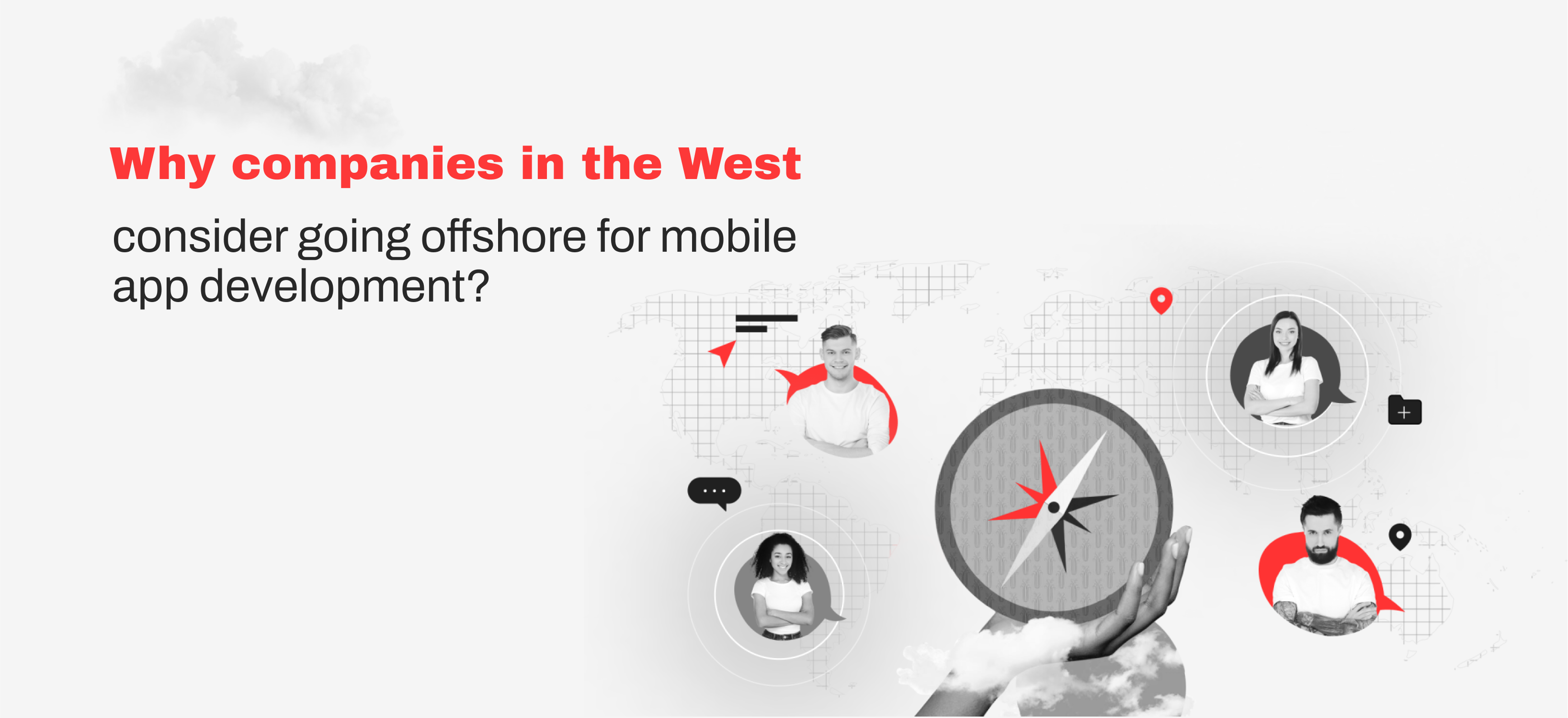The world is experiencing globalization like never before in the past two decades. With the acceptance of mobile phones growing rapidly, mobile apps have become an inevitable part of the entire ecosystem. Mobile apps are no longer limited to just small tasks and small businesses. Whether it be a ride-hailing business or a construction management tool, apps are becoming a central point of technological transformation specifically in the West. With the complexity increasing in the features and functionalities of the apps, the cost of developing the mobile apps is also increasing. In this cost concerning environment, hiring an offshore top mobile app development company has become a common norm.
According to aGoodFirms 2023 App Development Cost Study, an average developer hourly rates in the United States can range from $150 to $200, while rates in offshore destinations like India can be as low as $30 to $50. This significant cost disparity makes offshore development a particularly attractive option for startups, small and medium-sized businesses (SMBs), and even established companies seeking to optimize their development budgets.
Key reasons why Western companies are increasingly turning to offshore partners:
- Global Talent Pool: The global market offers a vast pool of skilled mobile app developers. By venturing offshore, companies can tap into this diverse pool and find specialists with expertise tailored to their specific needs. This can be particularly advantageous for companies seeking developers with experience in niche technologies or emerging platforms that may be scarce in their local market.
- Focus on Core Business Functions: Outsourcing app development frees up internal resources, allowing companies to focus their energy and expertise on core business functions such as marketing, sales, and customer service. This can be especially beneficial for startups and SMBs that may not have the in-house resources to manage a complex app development project while simultaneously running other critical business operations.
- Scalability and Flexibility: Offshore development teams offer greater scalability and flexibility than building an in-house team. Companies can easily scale their development team up or down based on project requirements and budget constraints. This allows for a more agile approach to development and helps companies adapt to changing market demands quickly and efficiently.
- The 24/7 Development Cycle Advantage: Due to time zone differences, partnering with an offshore team can create a near-24/7 development cycle. This can be advantageous for projects with tight deadlines, as it allows for continuous development and quicker turnaround times.
Crucial factors to consider when selecting an offshore partner
- Communication is Key: Effective communication is the lifeblood of any project. Time zone differences can pose challenges, so it’s essential to establish clear communication channels, define regular meeting times that work for both teams, and utilize project management tools that facilitate smooth information flow.
- Experience Matters: Don’t be solely lured by cost savings. Prioritize finding a best mobile app development company with a proven track record of success in developing apps similar to yours. Look for a portfolio that showcases their expertise in relevant technologies, design principles, and development methodologies. Partnering with an experienced agency can help ensure a smooth development process and a high-quality final product.
- Data Security and Privacy: Data security should be a top priority, especially when working with an offshore partner. Make sure the agency adheres to strict data security protocols and has a solid track record of protecting client information. Look for certifications like ISO 27001, which demonstrates the agency’s commitment to information security best practices.
- Project Management is Paramount: Establish a clear and well-defined project management plan from the outset. This plan should outline project scope, milestones, communication protocols, and deliverables. Regular progress reports, open communication, and a flexible approach that allows for adjustments are essential for ensuring the project stays on track and meets your expectations.
Offshore mobile app development can be a strategic move for companies seeking to optimize costs and access a wider talent pool. By carefully considering the factors outlined above, and nurturing a strong working relationship with your offshore partner, you can leverage the benefits of this approach and launch a successful mobile app that propels your business forward in the global marketplace. Remember, in today’s interconnected world, building a world-class app doesn’t have to be limited by geographical borders.



